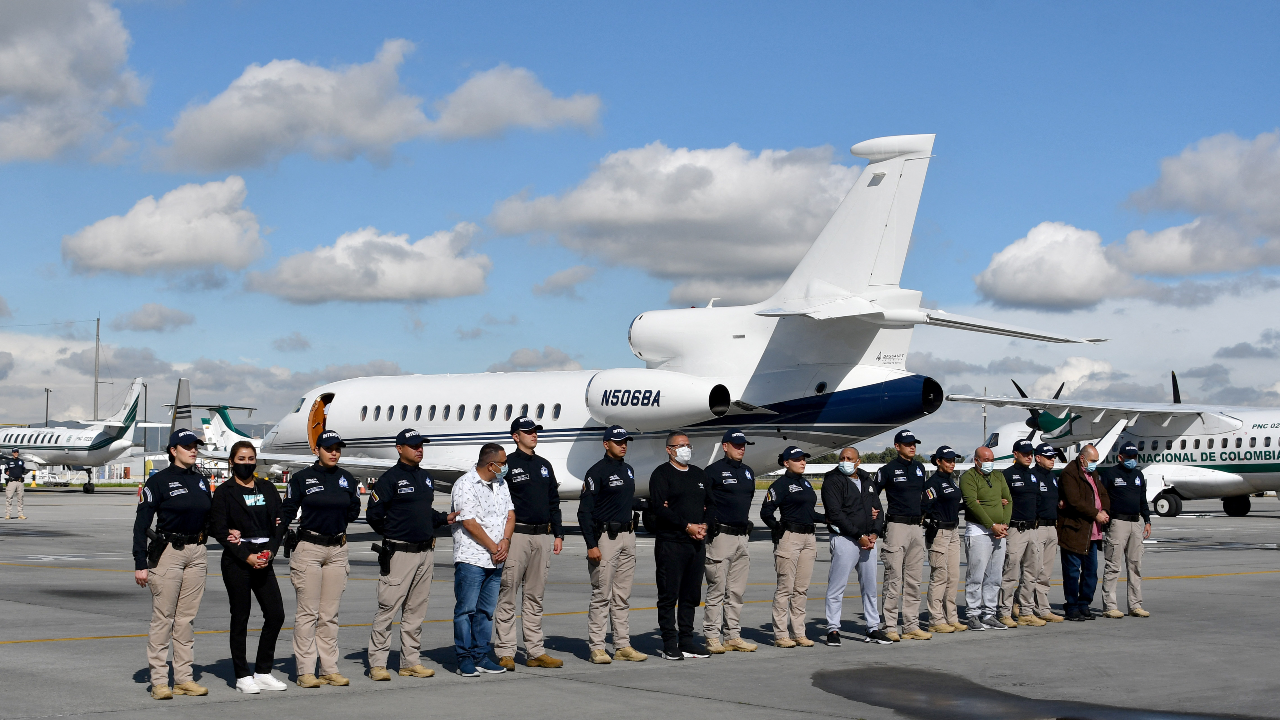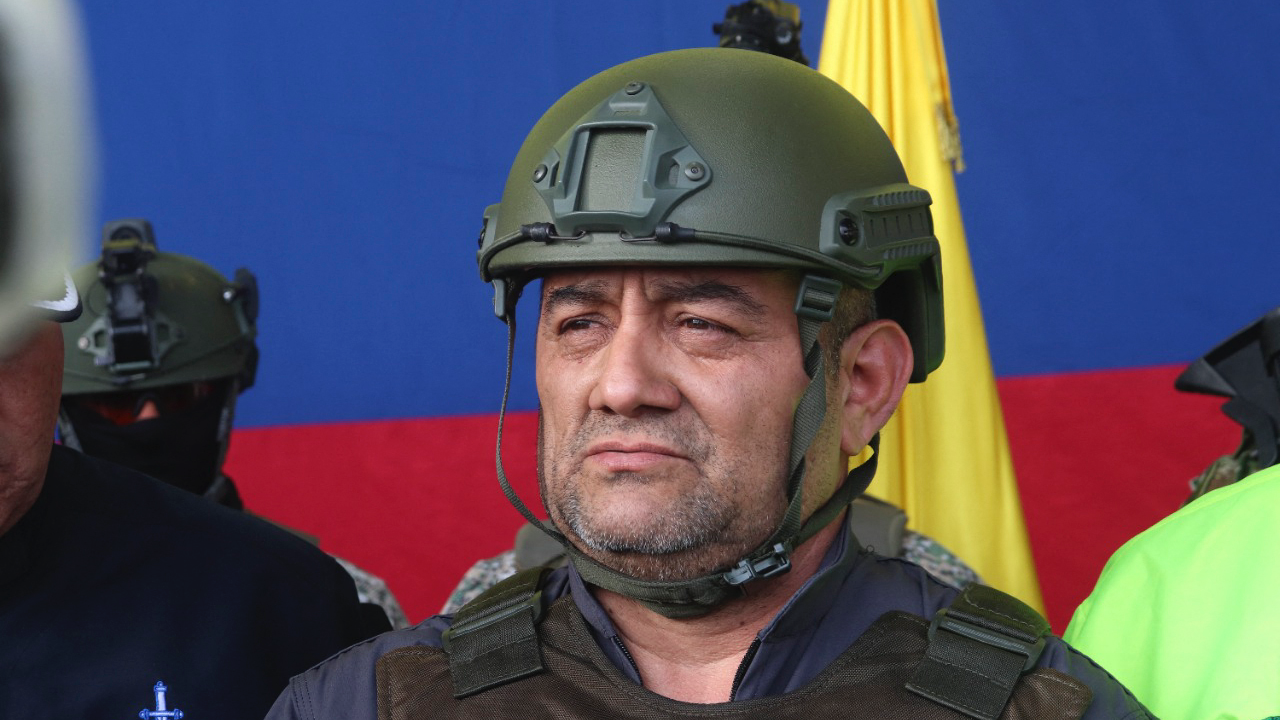First modification:
Nini Johana Úsuga, alias ‘La Negra’, the sister of the drug trafficker alias ‘Otoniel’, was extradited to the United States this Friday, the Colombian government announced. Required by a Florida court, she had been captured in 2021. She is accused, among other things, of having laundered money obtained by the Clan del Golfo narco-paramilitary group, one of the largest illegal armed groups in the country that her brother led before being captured and also extradited to the United States.
The Colombian authorities announced this Friday, July 1, the extradition of Nini Johana Úsuga, alias ‘La Negra’, to the United States. The sister of drug trafficker Dairo Antonio Úsuga, alias ‘Otoniel’, appeared in Bogotá surrounded by Interpol agents before boarding the plane that took her to the North American country.
‘La Negra’, I work with the Clan del Golfo, the most powerful narco-paramilitary group in the country. According to a statement from the Colombian police, she was in charge of “stimulating criminal income obtained from drug trafficking.” She was also “responsible for giving the character of legality to the money derived from drug trafficking of the criminal organization, through money laundering.” Finally, she coordinated the export of drugs from Colombia to other countries.
In 2013, Nini Johana Úsuga was arrested near the city of Medellín, the second largest city in Colombia, with the equivalent of 5.5 million dollars that, according to the Police, were “illegal income from her brother’s criminal group.” In prison, she managed to escape after falsifying documents before being arrested again for “conspiracy to commit a crime, illegal possession of firearms, prison escape, falsehood in a public document and procedural fraud.”
With her, six other leaders of the Clan del Golfo were extradited, also accused of drug trafficking.

Otoniel, one of the biggest drug traffickers in Colombia
His brother, alias ‘Otoniel’, accused of being the head of the Clan del Golfo, was extradited to face drug charges in the United States in early May.
The outgoing president, Ivan Duque, had then proudly announced his arrest. “He is the most dangerous drug trafficker in the world, a murderer of social leaders and policemen, a rapist of children and adolescents. Today legality, the rule of law, the public force and justice triumph,” said Duque, adding that he could only compare with Pablo Escobar, the famous co-founder of the Medellin Cartel, who was killed by the Police in 1993.
He is charged with, among other things, “leading a continuing criminal enterprise” and “participating in an international conspiracy to manufacture and distribute cocaine, knowingly and with intent that the drugs be illegally imported into the United States.” He pleaded not guilty to the charges in New York federal court following his extradition.
Authorities say ‘Otoniel’ is responsible for the deaths of hundreds of members of the Colombian security forces, among other massacres. He faces a minimum of 20 years in prison and a maximum of life in prison.

‘Otoniel’ was first part of the Colombian guerrilla Popular Liberation Army (EPL) before joining the United Self-Defense Forces of Colombia (AUC) and creating his own criminal gang when they demobilized. Drug trafficking and the war on drugs are central components of the armed conflict in Colombia.
The extradition questioned
Extradition was abolished in 1991 in Colombia, with article 35 of the new Constitution: “The extradition of Colombians by birth is prohibited. The extradition of foreigners for political crimes or crimes of opinion will not be granted. Colombians who have committed crimes abroad, considered as such in national legislation, will be prosecuted and tried in Colombia.”
Thus, Pablo Escobar reached an agreement with the Colombian government and could be imprisoned in 1991 in his own prison in Colombia.
However, Congress reinstated it only six years later, after unprecedented bloodshed by drug cartels. Until now, extradition was one of the main tools to fight against this scourge in the Andean country.
However, the president-elect, the leftist Gustavo Petro, recently proposed stopping the extradition of those drug traffickers who avail themselves of an eventual process of “peaceful dismantling of drug trafficking.” He announced a “policy of collective submission to justice” for drug traffickers.
At the time of Otoniel’s extradition, the victims had criticized the measure, arguing that they needed to know the truth about his actions as a guerrilla and about the hundreds of cases of human rights violations.
With EFE, Reuters and AFP














Add Comment